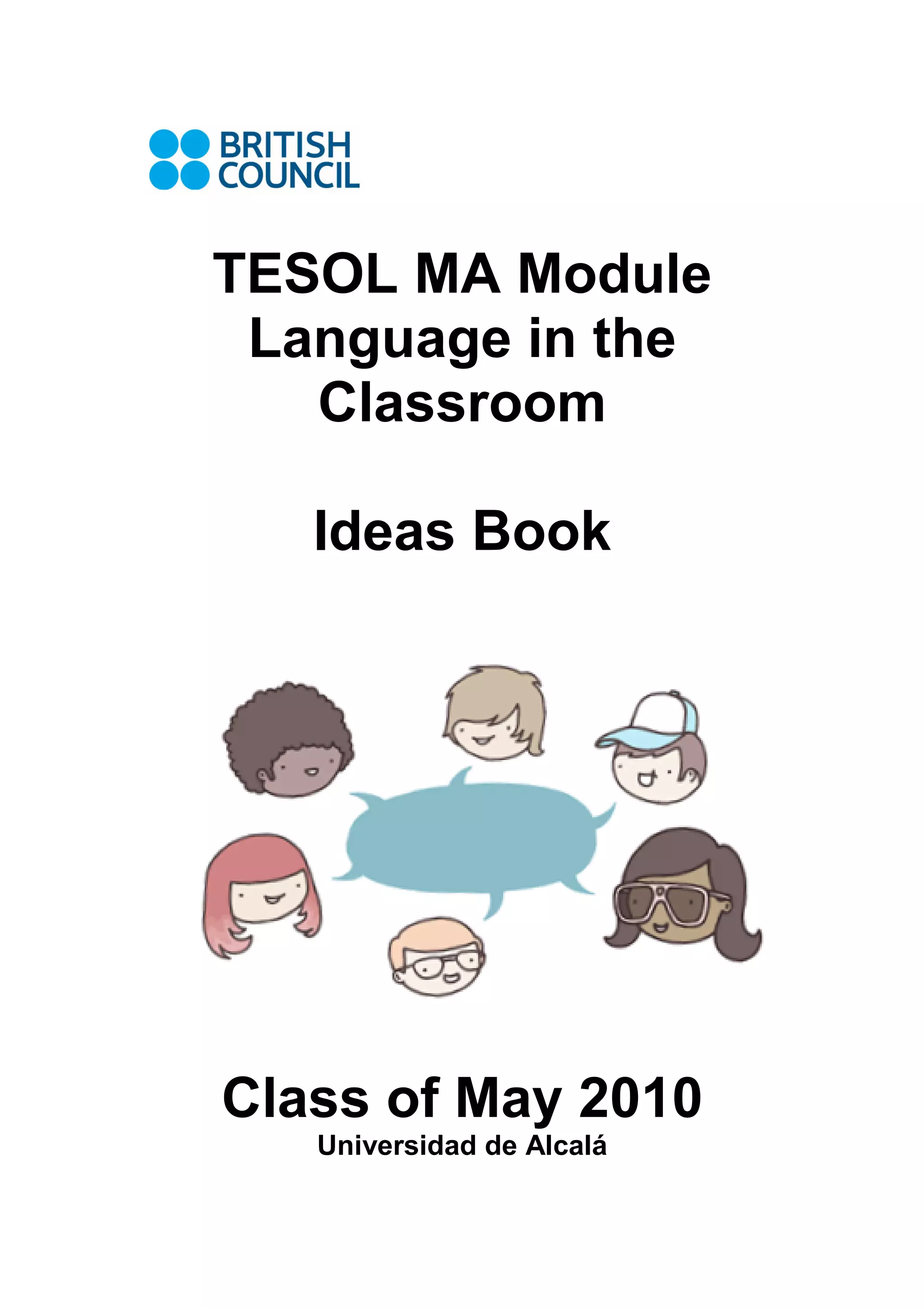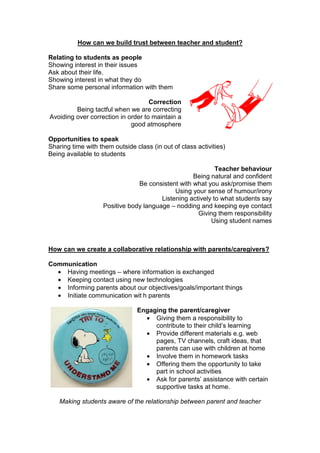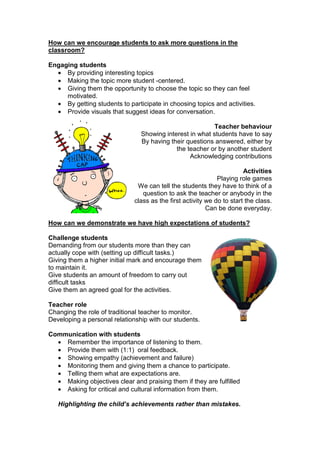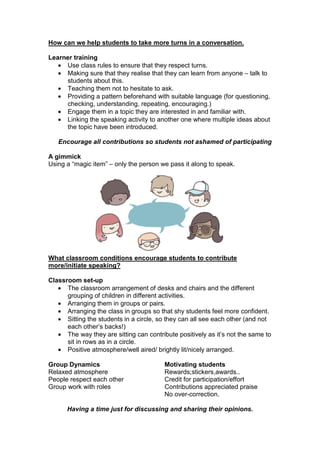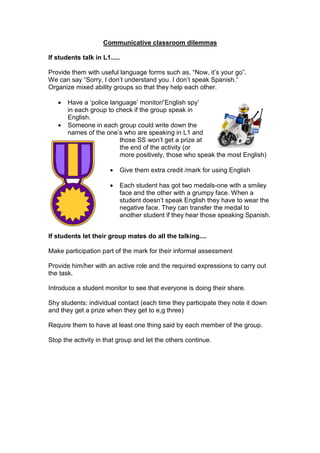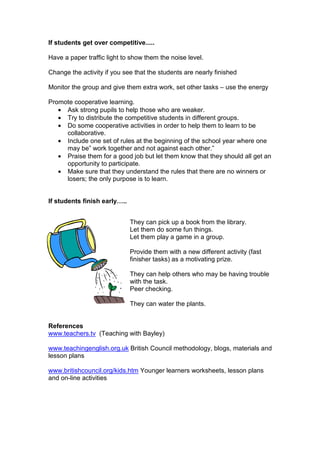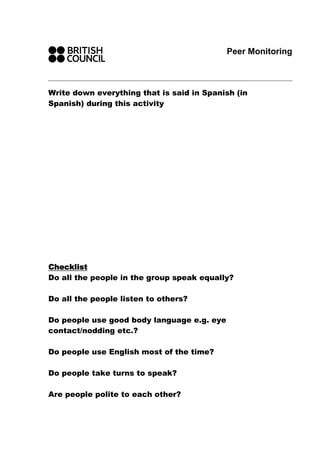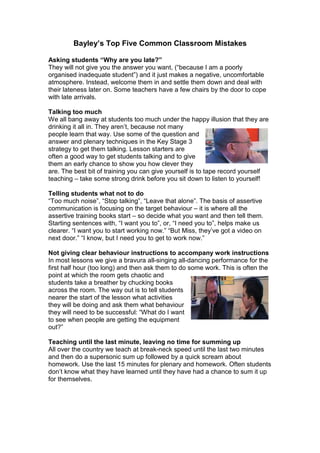This document provides guidance for teachers on building relationships with students and creating an effective classroom environment. It discusses establishing trust between teachers and students by showing personal interest, sharing some personal information, and being tactful during corrections. It also recommends encouraging student participation by making topics student-centered, acknowledging contributions, and using engaging activities like role plays. The document outlines strategies for communicating with parents, setting high expectations, encouraging questioning, and managing common classroom issues like students talking in their native language or finishing work early.
